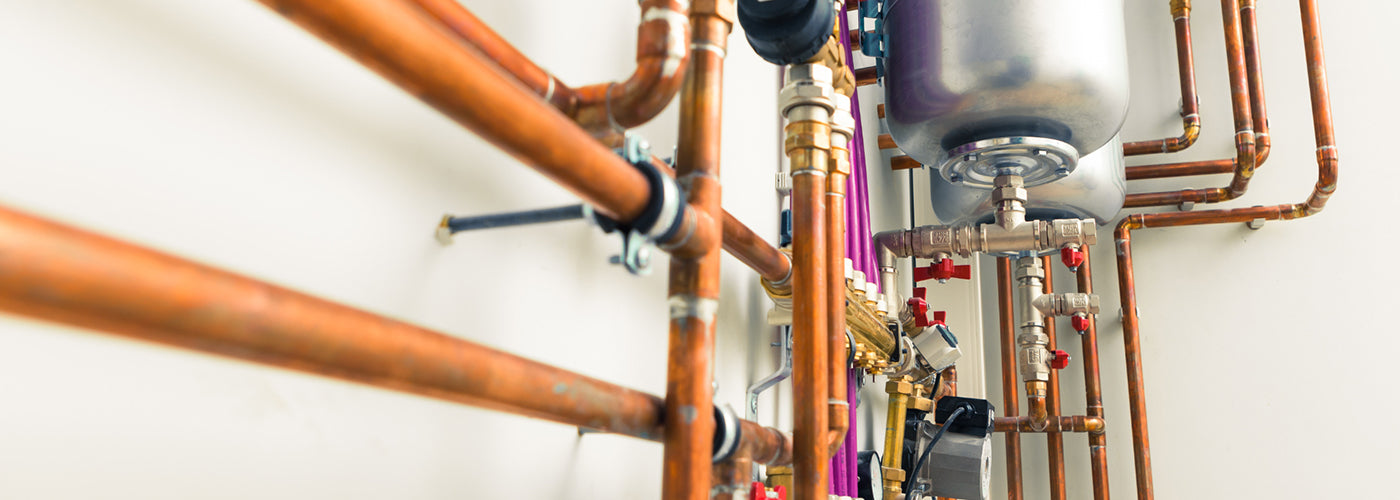
How Long Do Copper Pipes Last?
Copper pipes are a popular choice for home plumbing due to their long lifespan and durability. Known for their corrosion resistance, especially compared to cast iron pipes, and ability to handle high water pressure, copper remains a reliable long-term investment for any plumbing system.
But how long do copper pipes last? With proper care and maintenance, you can expect a copper pipe lifespan of 50 to 100 years—sometimes even longer. However, several factors can affect the longevity of your copper plumbing. Keep reading to find out how to keep your pipes in tip top shape.
5 Factors Affecting the Lifespan of Copper Pipe
As we mentioned, several factors can influence the lifespan of copper pipe plumbing.
Here's a breakdown of the five most important considerations:
1. Type of Copper Pipe
Not all copper pipes are created equal. There are three main types of copper piping used in residential plumbing:
- M Type Pipes: The thinnest and least expensive type of copper plumbing. While M-type copper piping is suitable for some applications, this copper pipe lifespan is shorter than other types.Because of this lower durability, it's generally not recommended for long-term use.
- L Type Copper Pipe: L type copper pipes are the most common type of copper piping used in homes with cold and hot water lines. L-type piping offers a good balance of cost-effectiveness and the long lifespan of copper pipe systems, making it a reliable choice for most residential plumbing.
- K Type Copper Pipe: This is the thickest and most durable residential copper piping type, with the longest copper pipe lifespan. It's often used in applications that require extra strength.
2. Water Pressure
High water pressure can put a lot of stress on your copper pipes and lead to pinhole leaks or even burst pipes. It's important to make sure your water pressure is within the recommended range. If it's too high, you can install a pressure regulator to reduce it.

Image Source: Canva
3. Water Quality
The quality of your water can also affect your copper pipe lifespan. Check these aspects to confirm your water quality.
- pH Levels: Acidic water with a low pH level can damage copper pipes over time, leading to leaks and other problems. Installing a water softener or neutralizer can protect your pipes if you have acidic water.
- Hard Water: Homeowners with hard water might ask themselves: How long do copper pipes last with hard water? Hard water contains high levels of minerals, primarily calcium and magnesium. These minerals can build up inside your pipes and reduce water flow, potentially causing clogs and shortening their lifespan.
- Sediment: High levels of sediment in your water can also shorten the lifespan of copper pipe systems by causing wear and tear on the inner walls of your pipes, reducing their life expectancy.
4. Installation Quality
A high-quality installation maximizes your residential copper pipe lifespan. Improper solder joints, poorly fitted joints, or incorrect installation techniques can all lead to premature failures and leaks.
5. Environmental Factors
The environment and materials surrounding your pipes can also play a role in the lifespan of copper pipe plumbing.
- Soil Conditions: Soil with corrosive chemicals can damage copper pipes that are buried underground. Thinner M-type pipes, especially, are vulnerable to corrosion.
- Stray Electrical Currents: These can cause corrosion in copper pipes, especially if they're not properly grounded.
- Concrete: If you plan to cover your copper pipes with concrete, you might also ask: How long do copper pipes last in concrete? Direct contact with concrete can damage copper pipes.
- Climate: Extreme temperature fluctuations can cause exposed pipes to freeze, expand, and contract, leading to stress and accumulated damage over time.

Image Source: Canva
Signs of Degraded Copper Piping
Even with the best plumbing care, copper pipes can eventually develop problems. It's important to be aware of the signs of damage so you can address issues promptly and avoid more serious problems down the line that may change the answer to “how long do copper pipes last?”
- Discolored Water: If your water appears green, blue, or a rusty color, there could be corrosion in your copper piping system. This is often caused by acidic water or minerals like iron in your water supply.
- Low Water Pressure: A decrease in water pressure could indicate a leak or blockage in your pipes.
- Visible Leaks: This is the most obvious sign that you’ve reached the end of your copper pipe lifespan. Check under sinks, around appliances, and in your basement or crawlspace for any signs of leaks or water damage.
- Strange Noises: Gurgling or banging sounds in your pipes are never a good sign. If you hear unusual sounds in your pipes, it could indicate air in the lines, which ultimately stresses your plumbing and can lead to early failure.
- Recurring Clogs: Frequent clogs in your drains could mean mineral buildup or corrosion within your home’s plumbing. In these situations, it’s best to call a plumber for a professional assessment.
Get Reliable Plumbing System Supplies From NYDirect
So how long do copper pipes last? They’re built to be durable, so depending on maintenance and conditions, you can expect a long copper pipe lifespan. However, every homeowner will face plumbing repairs or upgrades eventually, and when it is time to replace your home’s plumbing, turn to NYDirect as your trusted source for high-quality parts.
NYDirect is here for your plumbing needs. We offer a wide selection of top-quality copper piping, fittings, and essential plumbing supplies to tackle any project. Call us today for expert advice, and unlock even more benefits when you sign up for our Pro Membership program!Shop Popular Brands
America's Leading
Plumbing Supplies Retailer
Save big on plumbing essentials with
our wholesale prices!


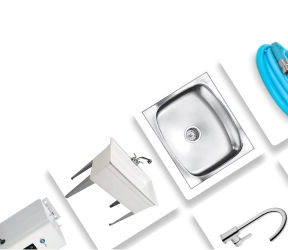
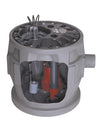

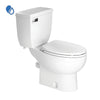

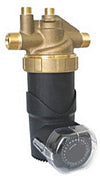

Leave a comment